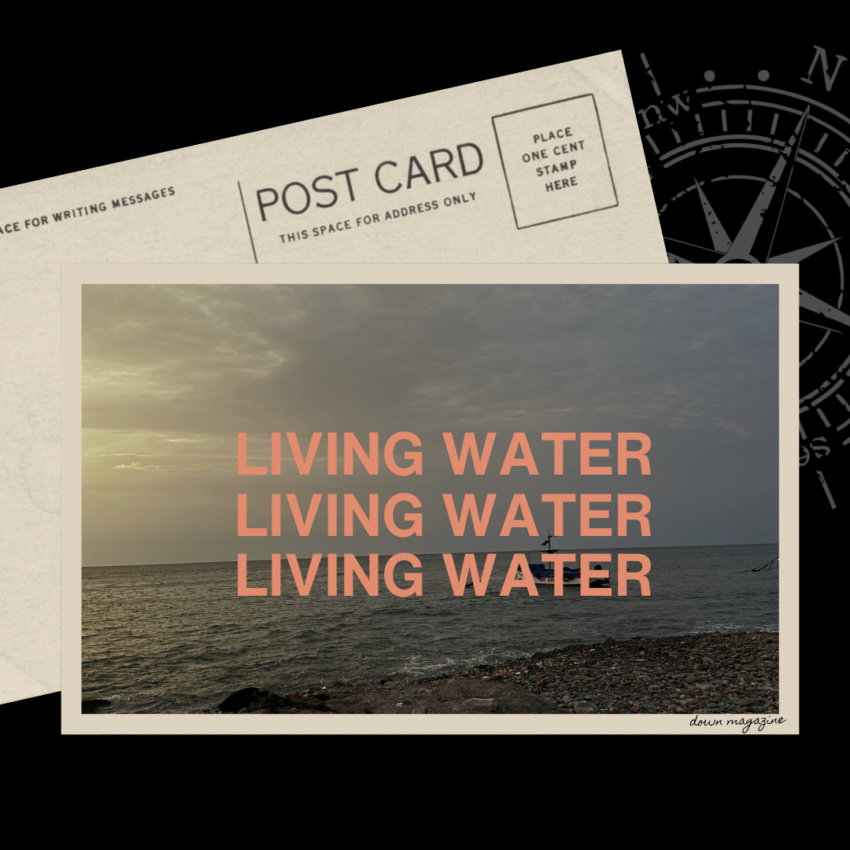It was warm under the afternoon light. A thin wind finds its way through sand, wafting itself up to my skin. It steals into bells some meters behind me. The rancor crashes with the next wave. Another crashes again, as the sand quickly turns into a hot plate. I thought it was uncomfortable enough with the sand lodged in the crevices between my feet, but my chalk-like skin couldn’t handle anything more. I brace myself. I leap off the beach floor and walk towards muddy sand, crashing waves, and stealing ocean.
My mother waves, beckoning me to enter. She rolls around, giggling. Tongues of water kiss her back; she has always found water liberating. Each time we go to the beach, taking pictures is mandatory. She keeps them in a special photo album, collecting images of life. They are archives of ecstasy amidst bare existence––something besides merely living. When she’s in water, anything is different, possible, at hand. Each drop flows away, but it always returns back to her. Nothing is lost. So she kisses the water back, lapping up the sea to her smile. It drips off. The sun dries off the water, again. I took another photo.
I wonder if she wants to be a mermaid. In Nigerian mythology, the orisha goddess Yemoja sent hurricanes to America after the white man stole her Black children. Some of the daughters who stayed turned into nymphs, living off the fish life wading in Nigerian waters. They were free when the white man decided to make our shores his own––to say our waters could be his. The mermaids could drink and dance. My mom doesn’t drink. She does love to dance.
I joined her in the water. It’s as easy as walking. I do some breaststrokes on the shallow side of the ocean. My legs touch cold rock. I push off. I wade in deeper spots, colder spots. My heart beats again, harder. I hear how it pushed against the waves. They echo my heart back to me. My mother turns and smiles. Mom sent me to years of swimming lessons. They paid off.
I dip, opening my eyes. It wasn’t particularly crystal clear, given the recent oil spill. A thin film smothered the surface, yet I saw some life beneath it. The seaweed waves back at me, and I smile. A rock turns. A bubble rises in rebellion. But the water gets louder. More bubbles rise. More sound is heard. The water gets warmer, but it doesn’t get easier to swim in it. I hear a scream. I turn. My mom flounders up and down. Her eyes peek out in terror. The water rejected her.
I run––no, I wade––as fast as I can to catch up. Faster, faster––I must run. I’m not a mermaid. I grab her side and her arms to pick her back up. She holds me tight with her last give of energy. Her body dissolves into mine. I trudge against waves crashing against my back. I taste the salt. I hear birds above me. My heart, again, presses against the water. It, too, presses against mine. Finally, I reach the coast.
I place her skin against the rocks. She recoils from the heat, spitting back water. She looks back at me––her face marred with despair. I hug her—heat passed to her, accepted. I knew her in the tears that passed from her eyes to mine. After she recoups her spirit, she whispers a tale of mermaids. I hear bits and pieces. The crashes of the Atlantic crush her song.
I sing back, I love you. Wind breaks the silence with an embrace. Now the hot plates beneath us turn muddy, and our feet clasp together in the wave crash, grasping for ground. Yet these sands don’t hurt. She thinks they are grains of hope amidst the rising tide. Indeed, we may have something to rest on. The sun is falling now.
And the wave crashes in again, stretching toward us. It only steals sand.




